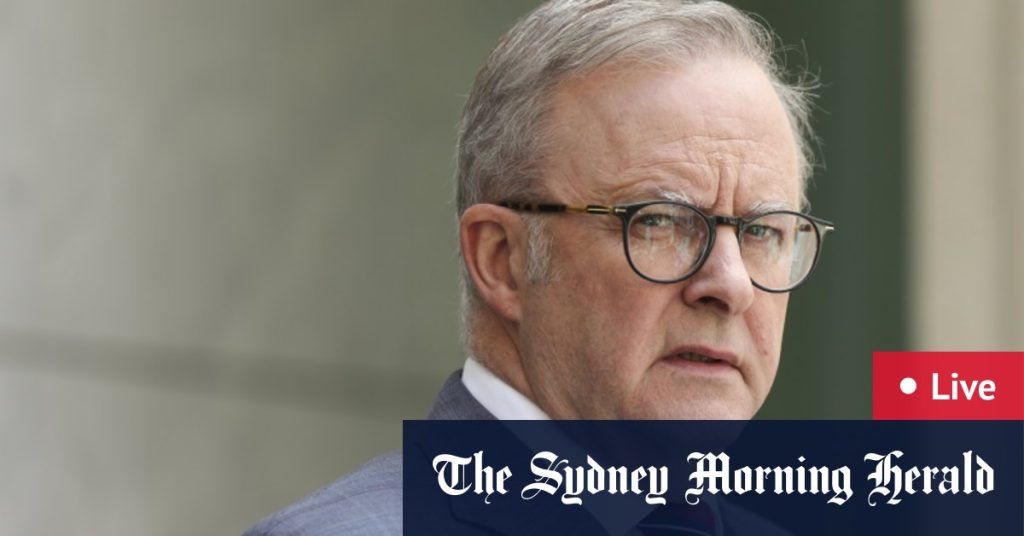The Resolve Political Monitor reveals a significant decline in core support for the federal Labor party, plummeting to a new low of 27%. This downturn coincides with a growing public discontent over the rising cost of living, with voters increasingly favoring the Coalition’s approach to alleviating financial pressures on households. Prime Minister Anthony Albanese’s recent attempts to reassure Australians with the message “we have your back” have fallen flat, with 56% of voters rejecting the sentiment. This widespread skepticism underscores the years of sustained strain on family budgets, leaving many feeling unheard and unsupported by the current government. Adding to Labor’s woes, a significant majority, 59%, believe their financial situation has worsened since the party assumed power, starkly contrasting with the mere 13% who feel better off. Looking ahead, voters are placing their faith in Opposition Leader Peter Dutton and the Coalition to improve their financial well-being over the next three years, granting them a 36% to 27% advantage over Albanese and Labor.
This erosion of public confidence in Labor’s economic management reflects a broader dissatisfaction with the government’s performance. The prevailing sentiment among voters is that the Albanese government has not adequately addressed the challenges posed by the rising cost of living, leaving many families struggling to make ends meet. The Coalition’s perceived strength in economic management, coupled with Labor’s perceived failings, has created an opening for the opposition to capitalize on public anxieties and present themselves as a more viable alternative. The “we have your back” message, intended to reassure voters, appears to have backfired, highlighting the disconnect between the government’s rhetoric and the lived experiences of many Australians. This disconnect further fuels the perception that the government is out of touch with the economic realities faced by ordinary citizens.
The depth of voter dissatisfaction is further underscored by the latest Newspoll, which paints a troubling picture for Prime Minister Albanese’s leadership. The poll reveals that Albanese is the weakest prime minister on the “strong and decisive” rating in the 16 years the poll has tracked the metric. This assessment of his leadership qualities places him in a precarious position, suggesting a lack of confidence in his ability to navigate the complex economic challenges facing the nation. In contrast, Opposition Leader Peter Dutton is perceived as the stronger and more decisive leader, further bolstering the Coalition’s appeal as a more effective alternative. This disparity in perceived leadership strength reinforces the narrative of a government struggling to maintain control and effectively address the concerns of the electorate.
Despite the negative assessment of his strength and decisiveness, Albanese maintains an edge over Dutton in terms of perceived arrogance. The poll indicates that Albanese is viewed as less arrogant than Dutton, which could be a mitigating factor for some voters. This perception of relative humility might offer a degree of insulation against the broader criticism of his leadership. Furthermore, Albanese retains his position as the preferred prime minister, suggesting that despite the decline in Labor’s support and the concerns about his leadership qualities, he still holds a degree of personal popularity. This continued preference for Albanese as prime minister indicates that the electorate’s dissatisfaction is not solely directed at him personally, but also encompasses the broader performance of the Labor government.
The confluence of these polling results presents a significant challenge for the Albanese government. The declining support for Labor, coupled with the negative assessment of the Prime Minister’s leadership, creates a difficult political landscape. The government needs to urgently address the public’s concerns about the cost of living and demonstrate a more effective strategy for alleviating the financial pressures on households. Failure to do so could further erode public confidence and solidify the perception of a government adrift. The Coalition, emboldened by these poll results, will likely intensify its attacks on the government’s economic management, seeking to capitalize on the prevailing public sentiment. The political battle lines are clearly drawn, and the government faces an uphill battle to regain the trust and confidence of the electorate.
The coming months will be crucial for the Albanese government. The public’s patience is wearing thin, and the government needs to demonstrate tangible progress in addressing the cost of living crisis. The “we have your back” message clearly hasn’t resonated, and a more concrete and effective approach is needed. The government must also work to improve the perception of the Prime Minister’s leadership, projecting an image of strength and decisiveness. The opposition will be relentless in its pursuit of weaknesses, and the government needs to be prepared for a sustained and vigorous political contest. The future of the Albanese government may well depend on its ability to effectively respond to these challenges and regain the trust of the Australian people.

